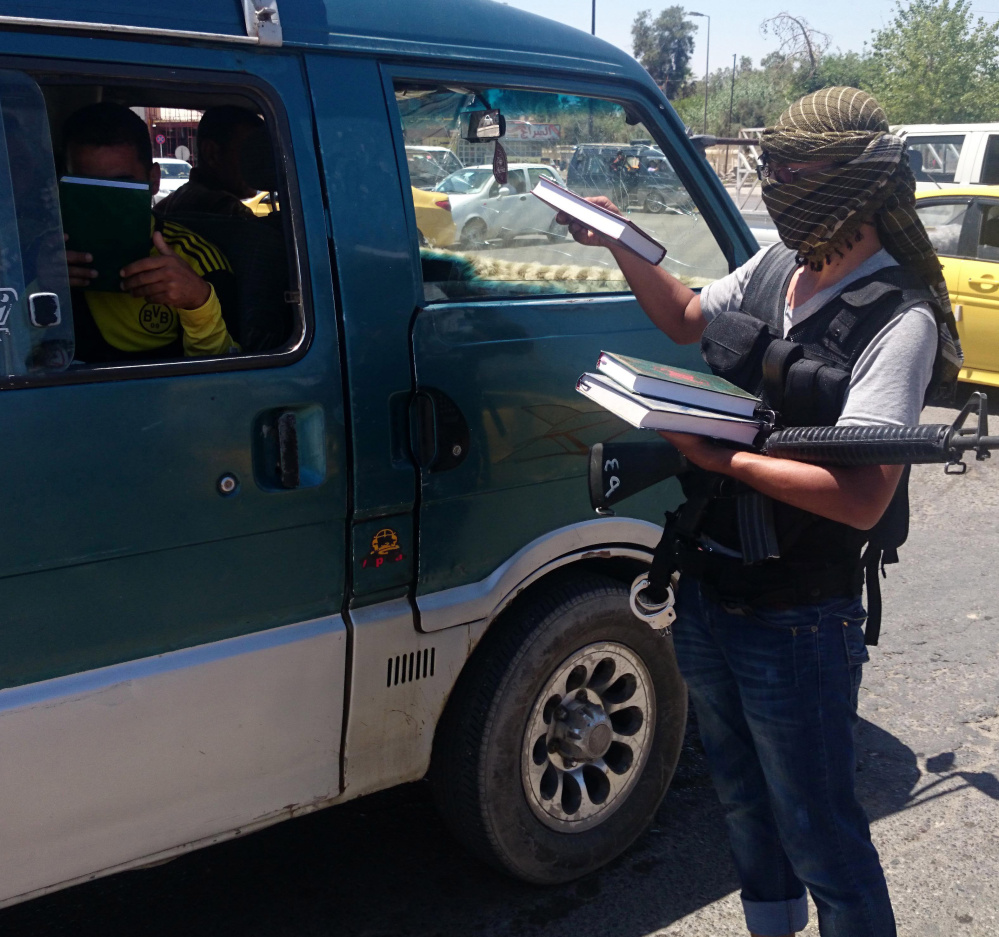WASHINGTON — The flow of foreign fighters into Iraq and Syria has dropped from roughly 2,000 a month down to 200 within the past year, according to the Pentagon, which says the waning numbers are further proof of the Islamic State’s declining stature.
The declining number of fighters is a direct result of strikes that have targeted the terror group’s infrastructure, Air Force Maj. Gen. Peter Gersten, the deputy commander for operations and intelligence for the U.S.-led campaign against the Islamic State, said Tuesday.
The Pentagon’s assertion lines up with other information that has emerged recently.
Last week, the Combating Terrorism Center at West Point, New York, published an article in its journal, the CTC Sentinel, that highlighted the Islamic State’s financial plight. Documents show that the Islamic State is having difficulty compensating its fighters and workers while providing basic amenities such as electricity and fuel. Defectors from the group have indicated that many fighters are on half pay and some haven’t received salaries in months.
Foreign fighters within the Islamic State have traditionally received better treatment than their local and conscripted counterparts. As recently as January, U.S. intelligence reports estimated that there were more than 30,000 foreign fighters from roughly 100 countries within the Islamic State’s ranks. That includes more than 6,000 Westerners. This number was echoed in a December report by the Soufan Group, a think tank, indicating that foreign fighters in Syria had doubled between 2014 and 2015. Western officials are concerned that foreign fighters returning from Syria and Iraq will return to their home countries radicalized and willing to carry out attacks within their own borders.
Patrick Skinner, director of special projects at the Soufan Group, said the Pentagon’s recent estimate regarding the dwindling flow of foreign fighters is probably accurate. “ISIS has bandwagon appeal and fewer jump on the losing bandwagon,” Skinner said.
A recent poll by the public relations firm ASDA’A Burson-Marsteller indicates that 80 percent of Arab teens and young adults rule out any support for the Islamic State, a number that is up from 60 percent in 2015. The poll is based on results from 3,500 respondents ages 18 to 24.
On Monday, President Obama said he would deploy an additional 250 Special Operations troops to Syria.
Send questions/comments to the editors.



Success. Please wait for the page to reload. If the page does not reload within 5 seconds, please refresh the page.
Enter your email and password to access comments.
Hi, to comment on stories you must . This profile is in addition to your subscription and website login.
Already have a commenting profile? .
Invalid username/password.
Please check your email to confirm and complete your registration.
Only subscribers are eligible to post comments. Please subscribe or login first for digital access. Here’s why.
Use the form below to reset your password. When you've submitted your account email, we will send an email with a reset code.